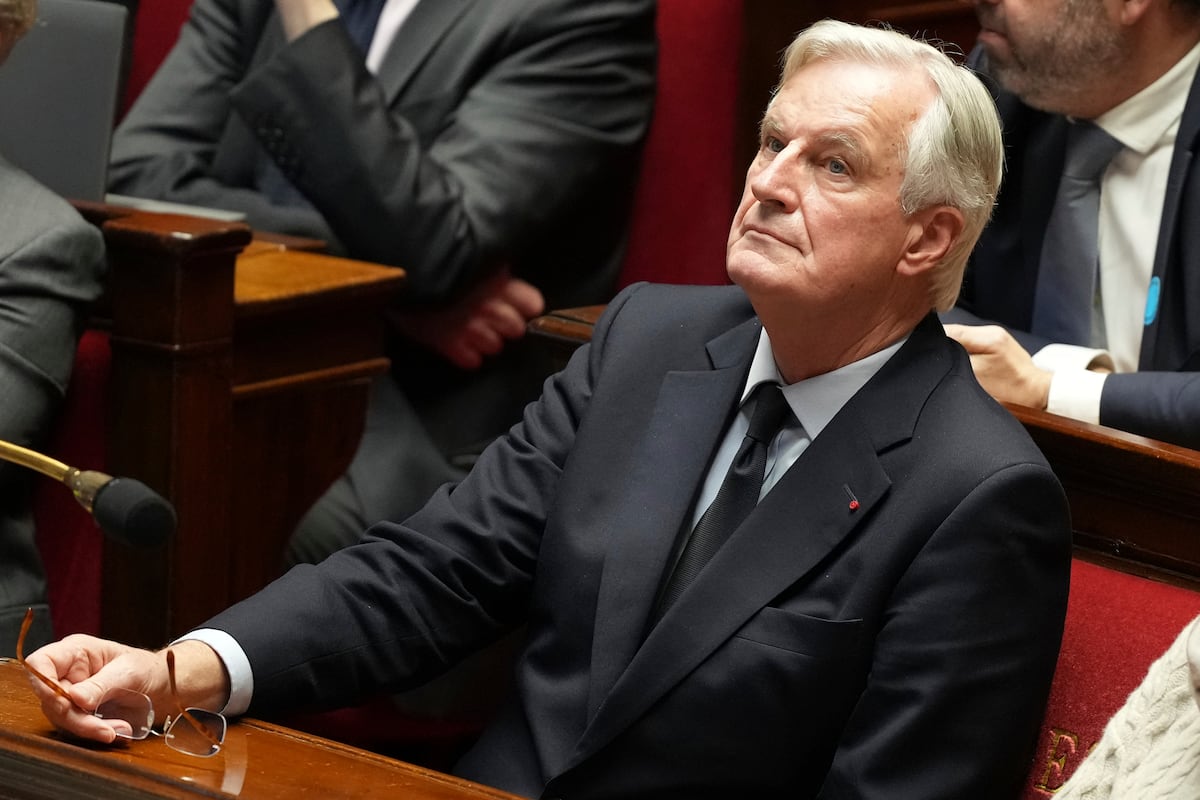The Prime Minister of France, Michel Barnier, will undergo a debate on Wednesday at four in the afternoon accompanied by two motions of censure: one presented by the left and the other by the extreme right. The head of the Government seeks in extremis some kind of pact after his mandate was set to expire on Monday by approving the Social Security budget by decree. Barnier will fall if Marine Le Pen’s National Rally (RN) keeps its promise to vote on the motion to be presented by the New Popular Front (NFP), the alliance of left-wing parties. A situation that will plunge France into absolute uncertainty and open up several scenarios, all with complicated solutions. Tonight, at eight in the afternoon, Barnier himself will give his version of the events on the prime-time news program on TF1 and France 2.
Wednesday’s appointment is presented as the end of a short path, but full of difficulties, that Barnier has had to travel since he was appointed by the President of the Republic, Emmanuel Macron, last September. Her name emerged as the least damaging solution for the sensitivities of the majority of the Government, given that the head of State refused to accept the candidate proposal proposed by the left: Lucie Castets. But from day one, Barnier had to deal with the reality of a parliamentary composition that did not favor him and in which Marine Le Pen and her National Rally would become arbiters of the contest.
The prime minister arrived with the aura of a skilled negotiator after the successful agreement he wove for the United Kingdom’s departure from the European Union. As the days went by, Barnier discovered that it is difficult to negotiate when there is a very clear agenda on the other side and, above all, that negotiation is not needed. If nothing remedies it, Barnier could now derail in the first corner of his mandate. “Let everyone assume their responsibilities. “I assume mine,” the prime minister launched from the tribune of the National Assembly, looking towards the opposition benches. Barnier tried to transfer the pressure to the other side of the pitch. But the reality is that, almost 24 hours after the announcement of the two motions of censure, he is increasingly closer to being the most fleeting head of Government of the Fifth Republic.
The situation is extremely worrying and puts France on the wire. The French public deficit, which in 2023 rose to 5.5% of GDP – which led the European Commission to open an excessive deficit file – now risks worsening to 5.6% this year and even up to 6.2% in 2025 if the urgent measures included in the budget are not taken. Far from being applied – if the Government falls, the current accounts would have to be extended – the political turbulence has ended up infecting the markets and the rate differential between France and Germany (the so-called risk premium, an indicator of the country’s solvency). It expanded again on Monday, reaching close to 86 basis points compared to 81 at the close of Friday.








